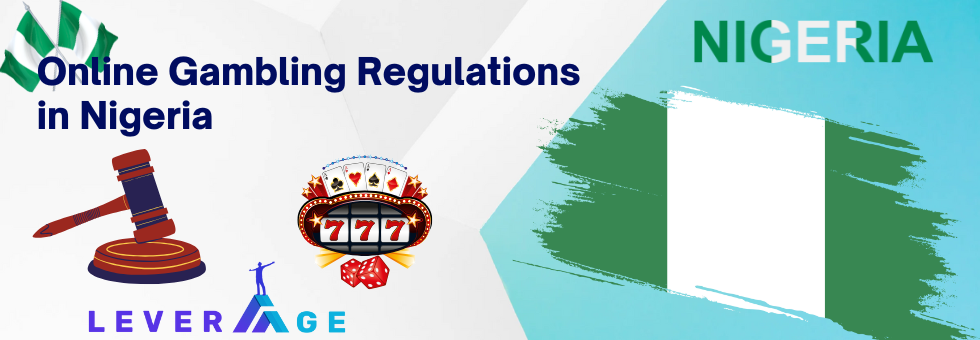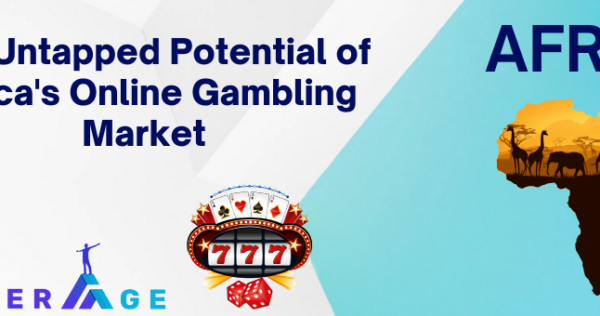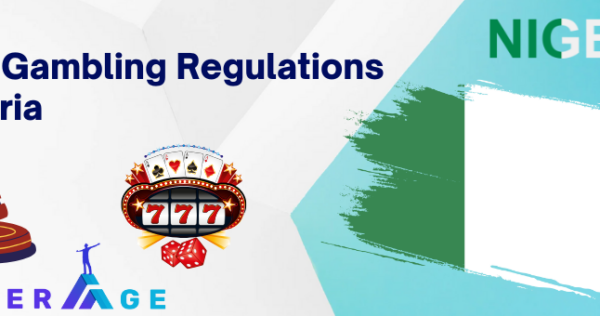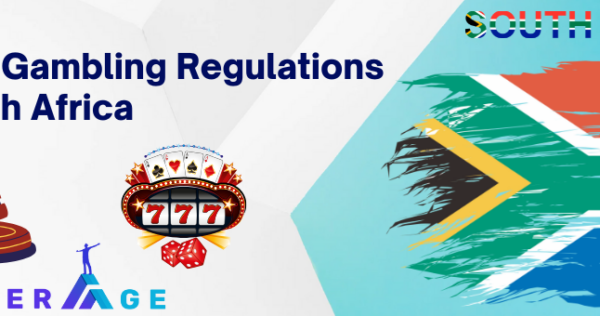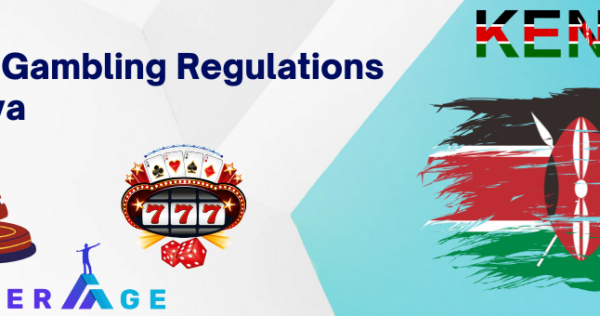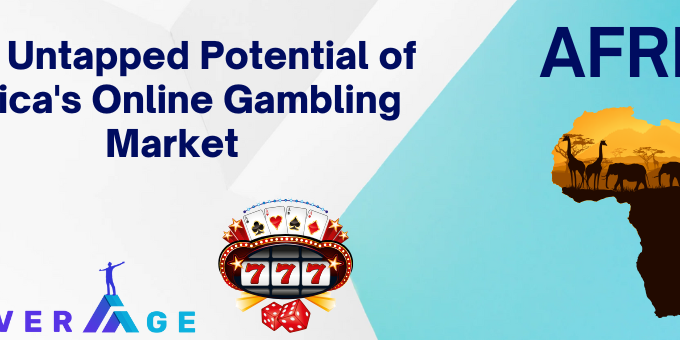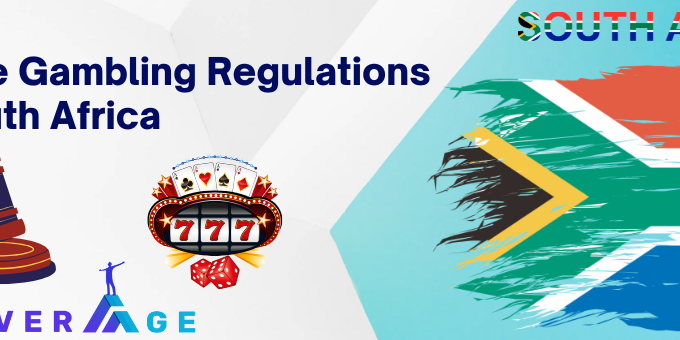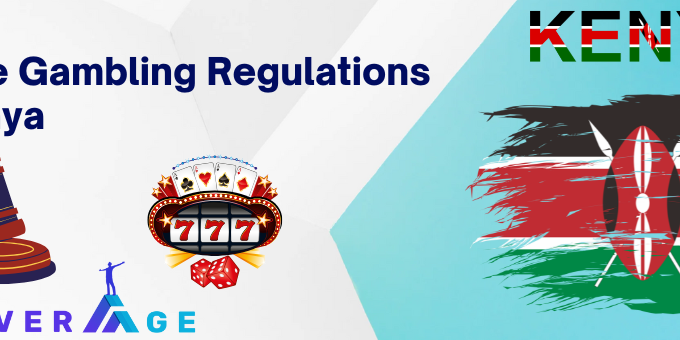Online Gambling Regulations in Nigeria
1. Introduction
Online gambling in Nigeria is a thriving business for bookmakers with most Nigerians loving sports. This has driven the government to legalize online gambling. There are various laws and regulations to control and guide online gambling in Nigeria. Historically, gambling was not widely accepted in Nigeria. However, since legalization of gambling, the activity has become accepted. Most Nigerians view gambling as a leisurely legal activity. The betting sector has flourished with various companies setting up businesses in Nigeria. Betting companies must obtain a license from the National Lottery Regulation Commission to (NLRC) operate legally.
The love for sports in Nigeria, especially football has driven online gambling. While a few people still bet traditionally in betting shops, there is a huge drift towards online betting. The online gambling market is projected to hit US$641.2M in 2024. Nigeria is the most populous country in Africa with a majority of these people under 30 years. Most of the young people have smartphones and excellent internet access. This has greatly driven the rise in online gambling. Revenue is projected to hit US$861.60m by 2029. The steady growth has attracted interest from International companies who are now investing in this market.
The article aims to guide brands joining the market on relevant online gambling laws, licensing, taxation, compliance, and enforcement. We will cover online gambling laws and regulations and steps to get an online gambling license.
2. Overview of Nigeria’s Online Gambling Market
A Snapshot of Nigeria’s online gambling industry
Nigeria’s online gambling market is a thriving one with a young population excited about betting. Gambling has always existed in Nigeria but remained highly discouraged by the church. However, the Nigerian government legalized gambling in Chapter 22, section 236 of the Criminal Code Act in 1990. This made gambling more acceptable to the public leading to the rapid rise of online gambling. Most Nigerians place bets on online sports betting, slot machines, and lotteries. Nigerians love football and most place bets on popular leagues like the English Premier League, Serie A, La Liga, etc. Online casinos and virtual games are also becoming popular with players looking for sports that cash out faster.
The Rise of Mobile-Based Gambling and How it Has Shaped the Industry
Mobile betting in Nigeria has revolutionized the gambling industry. The term refers to the use of smartphones and other mobile devices to access online betting sites and place bets. The use of smartphones has changed how youths in Nigeria access betting and place bets. Mobile devices are portable allowing gamblers to access these platforms from anywhere. They offer convenience, ease of use, accessibility, and a unique gambling experience. Users don’t have to access a computer or go to a betting shop to gamble. Most companies have gone a step further and developed apps that offer a seamless betting experience. You’ll find most of the popular apps already downloaded on the users’ phones.
Key Statistics: Market Size, Growth Rate, and Consumer Engagement
Most Nigerians consider gambling harmless with at least 36% of Nigerian adults having gambled in their life. The minimum legal age to gamble in Nigeria is 18 years. However, there are several reported cases of underage children participating in gambling. The market is hugely composed of young adults who are the majority in Nigeria. It is a flourishing industry as most youths embrace digital trends.
Easy access to smartphones and the internet has boosted the online gambling experience. Statistics have shown that there were over 140 million users with smartphones in Nigeria as of 2020. The number is expected to hit 187m users in 2025. This shows a huge potential for the online gambling market. Nigeria’s huge football fan base greatly contributes to the market size. Surveys have shown that at least 30% of adult Nigerians engage in betting daily or weekly. It is worth noting that over 79% of these people use mobile phones to place their bets.
3. Legal Framework Governing Online Gambling in Nigeria
Historical Context of Gambling Laws in Nigeria
Historically, the community, especially the church has discouraged gambling. For long periods, gambling in Nigeria was considered illegal and an anti-social activity. The church preached against the quest for quick wealth through gambling. However, in the late 1990s, the government started regulation with the sole purpose of raising revenues. In Chapter 22, section 236 of the Criminal Code Act, the government legalized some forms of gambling. This quickly made gambling more acceptable, opening a huge market. People would bet freely as gambling was considered a legal activity. This led to the creation of the National Lottery Regulatory Commission (NLRC).
The Role of the National Lottery Regulatory Commission (NLRC)
The NLRC’s sole purpose is to regulate gambling activities in Nigeria. The Commission was created through the National Lottery Act of 2005. There was a need to regulate gambling activities in Nigeria. The NLRC helps create accountability and transparency within the industry. The Commission is committed to creating transparency in the industry. It ensures stakeholders apply the latest technologies for both the social and economic development of all parties. There is a need to protect the industry players and the general public.
NLRC provides betting platforms with guidelines to ensure fair and safe gambling practices. It is responsible for the licensing of all betting companies in Nigeria. The commission ensures the public is protected by ensuring data protection and high cybersecurity standards.
What is Legal and What is Illegal Under Current Nigerian Laws
Nigerian gambling laws and regulations define legal and illegal gambling. The law classifies legal gambling games as games that require some skill to win. Illegal laws are games of chance where gamblers need to just make a guess. Legal gambling games include lotteries, sports betting, land-based casinos, and much more. Illegal forms of gambling are games of chance. These are games like non-skilled cards, dice, roulette, etc. However, there are no specific laws on how to regulate gambling in Nigeria. The law only states the legal gambling age of 18 years.
Recent Legal Reforms and their Impacts on Online Gambling
There are proposals to reform current gambling laws and regulations in Nigeria. The 2005 National Lottery Act was amended in 2017. The industry is currently facing several legal challenges due to unclear jurisdictional boundaries between State and national bodies. Online gambling laws and regulations in Nigeria vary from State to State. The NLRC oversees gambling in the entire country. However, there are also local regulators in different states with certain laws. For example, Lagos State has the Lagos State Lotteries and Gaming Authority (LSLGA) that governs gambling within Lagos State. Overlapping regulations can pose a challenge to investors due to inconsistent law enforcement.
There are also laws around advertising for gambling operators to protect vulnerable people in society. There are specific guidelines on advertising to ensure brands employ good gambling practices. There are specific timelines and durations to advertise on radio and TV. Companies must ensure they don’t expose too much gambling content to the population. Deceptive advertising is also prohibited with brands liable to fines and even license cancellation. Betting platforms must also develop ways to identify the age of users when registering on their platforms. There is a need to protect underage children and vulnerable persons in the population.
Potential for Future Legal Developments in the Industry
There is a potential for future legal development in the industry with all parties looking for harmonized laws from the State to the National government. The widespread adoption of mobile devices to gamble has changed the industry. Coupled with technological advancements, there is a pressing need for new rules. Consumers need to feel safe when engaging in the rapidly changing industry. There is a need to curb underage gambling in Nigeria. Efforts need to be put in place from all stakeholders. It is extremely difficult to curb underage gambling with most gambling taking place online. There needs to be strict laws on age identification when registering new users. Nigeria needs to shift to laws that support the growth of the industry while protecting the consumers. Future laws need to put more effort on betting platforms to educate users on responsible gambling.
4. Licensing and Compliance Requirements for Operators
Step-by-step Process for Obtaining a Gambling License in Nigeria
All betting platforms operating in Nigeria must be licensed by the National Lottery Regulatory Commission. Before any operations, companies must show capability and proof of finances. The first step is a formal letter seeking to apply for a gambling license. A non-refundable fee must be paid to the NLRC which decides to grant or deny the request for a license. Brands looking to invest in the industry must meet the legal requirements of the NLRC and those of local states. The applications must show proof of financial capability and a detailed business plan of the gambling model. There is a need to use certified software and come with a trademark for your company. New brands must also show a service legal agreement with the software architecture. The commission will perform due diligence and integrity tests before issuing a license.
Ongoing Compliance Requirements
Issuance of a gambling license is not the end of the betting platform and the agency. These two must work together as companies start operations. There is a need to ensure betting firms are compliant throughout and meet the set-out laws and regulations. Betting companies must implement data protection laws to safeguard user data. Anti-money laundering measures must also be put in place. It’s up to the operator to put checks in place and know their customers. A Know Your Customer (KYC) process is crucial to ensure only registered and legal persons can gamble. Ongoing compliance also includes tax obligations on both the customer and the operator. All licensed companies are obligated to submit 2% of the turnover to the National Lottery Trust Fund. A further 1% is to be paid to the NLRC.
Common Compliance Challenges Faced by Operators and How to Mitigate Them
Operators face various compliance challenges as licenses do not express limitations on what they should perform. While operators must abide by set out laws and regulations, there are two sets of laws. This usually creates a challenge for operators who must abide by different laws from one State to another. The laws are not clear on good gambling practices and operators must try to do what is right. This includes performing thorough checks on new users and setting out proper age-identifying measures. A clear line of communication should be provided by operators to help solve issues from users. Overall, operators need to employ good gambling practices, clear and truthful advertising, and promote responsible gambling.
5. Taxation of Online Gambling in Nigeria
Overview of Nigeria’s Tax Structure
Online gambling in Nigeria is done at a National level and State level. Operators are licensed at National level and pay taxes to the NLRC. They are also licensed per the State they operate and pay tax in each State. The tax rates are the same for both online and land-based gambling. At the National Level, operators are required to pay 20% of their gross revenue. However, the exact amount paid to states varies. For example, 2.5% of the gross revenue is payable in Lagos State. The tax rates can change from time to time as the regulator wishes. Recent changes by the NLRC have mandated operators to pay 1% and 2% of gross monthly sales turnover to the NLRC and the National Lottery Trust Fund. In instances where short code messages are used, operators are required to pay 2% and 3% to the NLRC and the National Lottery Trust Fund respectively.
Evolution of Gambling Tax Policies
Policies on gambling tax are bound to change in each financial year. Currently, the lottery and gambling-related activities have also been included in the Federal Inland Revenue Service. This process will be automated to ensure transparency and efficiency. There are currently no taxes on player’s winning. Player’s winning withholding tax is common in most countries looking to curb the menace of gambling.
Economic Impact of Gambling Taxes on the Nigerian Economy
The online gambling industry in Nigeria is a major revenue source for the government. Nigerians spend around 2 billion US dollars on betting daily with an average wager of $8. The growth of online betting has made it easier for millions to join and bet seamlessly from mobile devices. The industry is properly harnessed and can be a major revenue contributor in the country. With the expected introduction of VAT and CITA on lottery and betting sports, the industry is bound to have a huge effect on the economy.
The Role of Taxation in Regulating the Industry and Ensuring Fair Play
Taxation in the online gambling industry helps regulate the players and ensure fair play. The bodies in charge of gambling play a critical role ensuring fair play and transparency for all players. It ensures operators don’t enjoy all the profits with a percentage of going to taxes and eventually serving the community.
6. Enforcement of Gambling Laws and Penalties
Enforcement Mechanisms to Ensure Compliance
The National Lottery Regulatory Commission is responsible for enforcing set-out gambling laws and regulations. The commission sets out and enforces the laws within its jurisdiction. It is responsible for the issuance and revocation of gambling licenses. The Commission sets out to ensure all operators are compliant and working within the laws. This helps protect the general public from any sort of manipulation.
Penalties for Non-compliance
Operators disobeying the set-out laws and regulation can face penalties like fees and even license cancellation. All operators must work and gamble within the description of their license. Companies performing illegal gambling activities are liable to fines and license revocation or both. There are even criminal penalties for illegal operators without licenses. Players can be taken to court and prosecuted.
Efforts to Combat Illegal Gambling Platforms
There are challenges in enforcing all the laws and combating illegal gambling platforms. In this digital era where everything is done online, the commission must be strict and identify operators working illegally. This ensures fair play to other operators working in Nigeria and paying taxes.
7. Consumer Protection and Responsible Gambling
Nigeria’s Legal Framework for Legal Protection
It’s the mandate of the NLRC to protect the general public from illegal gambling, operator manipulation, false advertising, and poor services. The consumer data and money must be safe on these platforms. The commission must ensure operators use the latest cybersecurity and data protection measures. Operators must educate users and promote responsible gambling.
Regulations to Prevent Gambling Addiction and Protect Vulnerable Persons
Consumers must be protected from excess exposure to gambling adverts on radio and TV. There needs to be specific times to advertise gambling to protect vulnerable persons. Operators need to educate users and provide easy customer service like WhatsApp messaging to help addicted gamblers.
Efforts to Ensure Fair Play and Prevent Fraudulent Activities
All gaming activities from casinos to sports betting must be fair to gamblers without any manipulation. It’s up to the regulatory body to ensure players’ winnings are fair. The operators must also put measures to prevent fraudulent activities like money laundering.
Responsible Gambling Activities Mandated by Law
To prevent excessive gambling, the regulatory bodies have put in place limits on advertising. Operators can only advertise at specific times to safeguard vulnerable persons. They should also provide resources for addicted players. Adverts must feature warnings against irresponsible gambling.
8. Future Outlook and Regulatory Challenges
The Future of Online Gambling Regulation in Nigeria
The future of online gambling in Nigeria is bright with most Nigerians taking gambling as a leisure activity. There has been an upward trajectory in the number of gamblers in Nigeria. However, laws and regulations must be put in place to protect the industry and the general public from excessive gambling.
Upcoming Laws and Policies to Online Gambling in Nigeria
More measures need to be put in place to protect the consumer without affecting the industry. A review of the existing laws is crucial to create harmony between State and National laws. There should also be clear definitions of operator licenses on the type of gambling they should engage in.
Regulator Challenges in the Fast-evolving Industry
Regulators face multiple challenges as the industry is ever-evolving. There are new betting games like Esports that are hard to regulate and ensure fair play. Illegal operators using cryptocurrencies as a means of deposit are hard to track. There are also multiple cross-border betting platforms that can be accessed by Nigerians.
9. Conclusion and Key Takeaways
Nigeria’s online gambling market is on the rise and one that can be a key contributor to the economy. However, the industry is not properly regulated. The NLRC responsible for the gambling industry does not have well-defined laws that guide gambling in Nigeria. There is a need to create clear laws and uniform laws between the State and the national government. This is a great way to curb illegal gambling and prevent underage betting. A clear set of laws with proper guidelines can attract more investors and grow the industry further. New brands entering the Nigerian market are advised to seek legal advice. Make sure you consult a local expert to ensure compliance.
Disclaimer
The information provided on this page is for general informational purposes only and does not constitute legal advice. We are not a law firm or a licensed legal authority, and the content should not be relied upon as a substitute for professional legal counsel. Any reliance you place on this information is strictly at your own risk. We assume no responsibility or liability for any errors or omissions in the content provided or for any outcomes resulting from its use. Always consult with a qualified legal professional for advice tailored to your specific circumstances.

